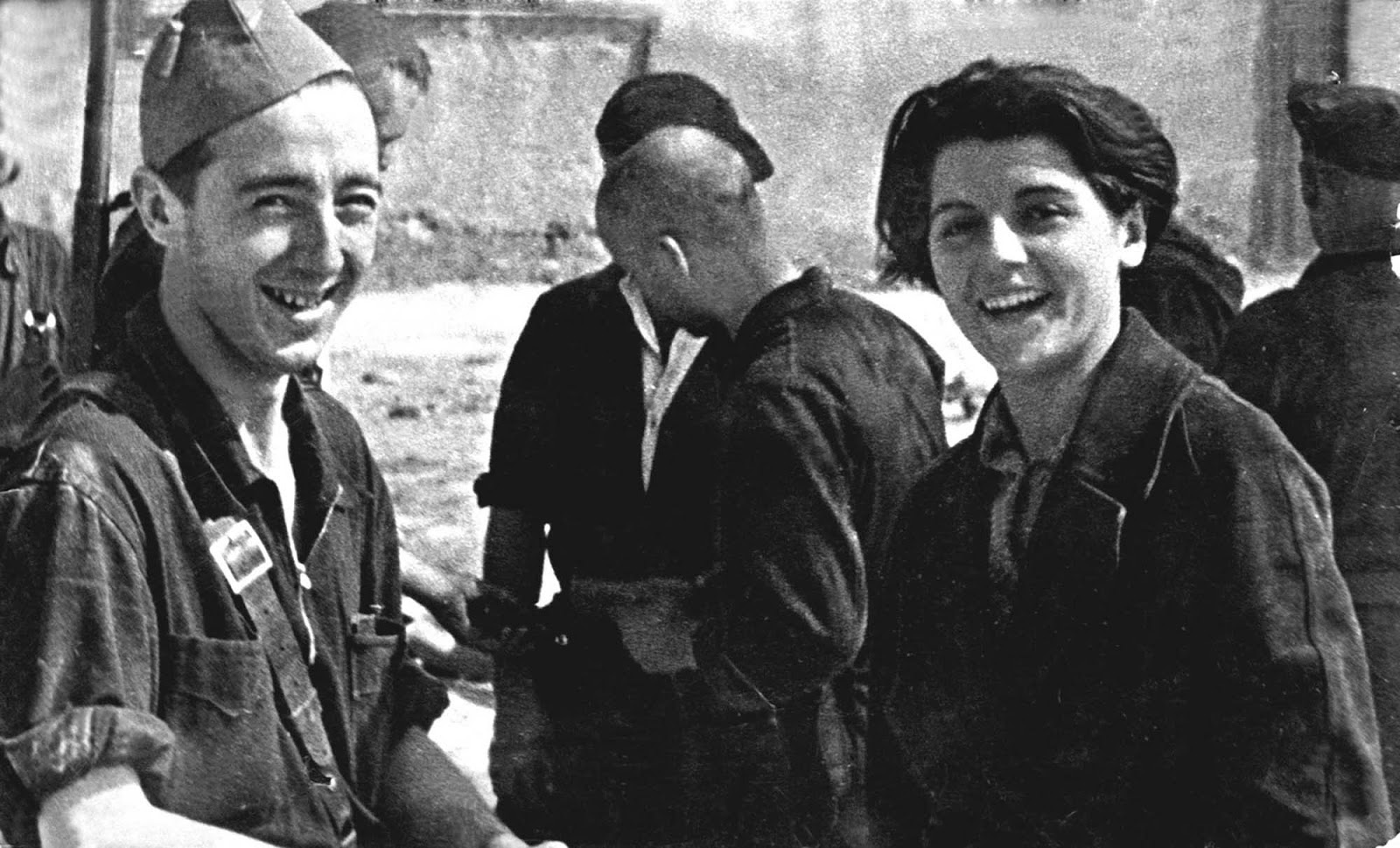Marina Ginesta, a 17-year-old communist militant, overlooking Barcelona during the Spanish Civil War, 1936

Marina Ginesta became famous due to a photograph taken by Juan Guzmán on the terrace of the Hotel Colón in Barcelona during the military uprising in Barcelona in July 1936.
As she was a reporter, this was the only time Ginesto was carrying a gun. The rifle she is carrying is the M1916 Spanish Mauser, manufactured for the Spanish military at the famous Oviedo factory in Spain.
Marina Juventudes was a member of Socialistas Unifadas (Socialist Youth), a youth organization mainly directed by the Partido Comunista de Espaa (PCE, Communist Party of Spain). As the war broke out, she worked as a reporter and a translator assisting Mikhail Koltsov, a correspondent for the Soviet newspaper Pravda.
Despite his initial involvement, he became disillusioned with the path the Stalinists were taking. Marina remained a militant throughout the war, and at that time joined other groups such as the anti-Stalinist P.O.U.M (who was a member of the famous author George Orwell) and the anarchist C.N.T. Before the end of the war, Genesto was wounded and evacuated to Montpellier.

Marina did not know about the photo until 2006, although the iconic image was printed and circulated everywhere, served as the cover of the book "Thirteen Red Roses" by Carlos Fonseca, and dozens in the book "Unpublished Images". Along with other pictures. Civil War ”(2002).
He was identified by Garcia Bilbao, who read the memoirs of the Soviet correspondent of Pravda Mikhail Koltsov, with whom the young girl appears in another photo.
García Bilbao discovered that Ginsta Marina, along with Jay, whom Guzmán identified in the caption, was actually Marina Ginesta, an exile who was translating French texts in Paris. Spanish Civil War icon Marina Ginesta died in Paris on 6 January 2014 at the age of 94.


No comments: